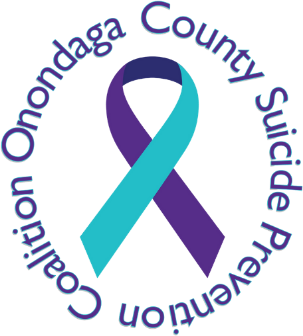Get Help
I’m struggling
- Can’t stop the pain
- Can’t think clearly
- Can’t make decisions
- Can’t see any way out
- Can’t sleep, eat or work
- Can’t get out of depression
- Can’t make the sadness go away
- Can’t see a future without pain
- Can’t see themselves as worthwhile
- Can’t get someone’s attention
- Can’t seem to get control
You don't have to try to handle it alone. Find someone you trust and let them know how bad things are.
-Talk to friends, family, a counselor or clergy.
-Visit your family doctor; they can recommend counseling or medication.
-Crisis Text line - text "HOME" to 741 741 to be connected to a counselor.
-Call, text or chat 988 for free 24/7 support.
-Community mental health agency.
-School counselor or psychologist.
-Private therapist.
Tips for Seeking
Treatment:
- Pair medication with talk therapy and self-help for greater impact.
- Talk to your provider about their experience treating suicide risk.
- Seek out specific treatments, like Dialectical Behavioral Therapy or Cognitive Behavioral Therapy.
- Call 211 for information on additional resources, especially if you are not insured.
Tips for Seeking
Treatment:
- Pair medication with talk therapy and self-help for greater impact.
- Talk to your provider about their experience treating suicide risk.
- Seek out specific treatments, like Dialectical Behavioral Therapy or Cognitive Behavioral Therapy.
- Call 211 for information on additional resources, especially if you are not insured.

I’m worried about someone else
When someone is at risk
If you think someone is thinking about suicide, assume you are the only one who will reach out. You can be the difference in getting them the help they need. It’s important to take care of yourself when you are supporting someone through a difficult time, as this may stir up difficult emotions. If it does, please reach out for support yourself.
What can I do?
Ask the at-risk person if they are having thoughts of suicide. Acknowledging and talking about suicide reduces rather than increases suicidal thoughts.
Keep them safe
Determine if the at-risk person has suicide intent with a specific plan. Removing, disabling, or restricting the lethal means (ie. firearms, medications) can make a difference.
Help them connect
Help make a connection with a trusted individual like a family member, friend, spiritual advisor, or mental health professional.
Stay connected
Staying in touch after a crisis or after being discharged from care can make a difference. Studies have shown that suicide risk decreases when someone follows up with the at-risk person.
CALL 911
if someone is in immediate danger of harming him/herself or others.
Do's
- Talking with and finding help for someone that may be suicidal can be difficult. Here are some tips that may help.
- Be direct. Talk openly and matter-of-factly about suicide.
- Be willing to listen. Allow expressions of feelings. Accept the feelings.
- Be non-judgmental. Don’t debate whether suicide is right or wrong or whether feelings are good or bad. Don’t lecture on the value of life.
- Get involved. Become available. Show interest and support.
- Offer hope that alternatives are available but do not offer glib reassurance.
- Take action. Remove means, like weapons or pills.
- Get help from people or agencies specializing in crisis intervention and suicide prevention.
Don'ts
- Don’t dare him or her to do it.
- Don’t act shocked. This will put distance between you.
- Don’t be sworn to secrecy. Seek support.
I’ve lost someone
People Grieve Differently
- Know that you can survive. Though you may feel you cannot survive, you can.
- The intense feelings of grief can be overwhelming and frightening. This is normal. You are not going crazy; you are grieving.
- You may experience feelings of guilt, confusion, and anger, even fear. These are all common responses to grief.
- You may even have thoughts of suicide. This, too, is common. It does not mean you will act on those thoughts.
- Forgetfulness is a common, but temporary side effect. Grieving takes so much energy that other things will fade in importance.
- Grief also affects us physically. You may find that you are more accident-prone, that you get sick more easily, you feel fatigued and have more pain.
Coping Strategies
- Keep asking “why” until you no longer need to ask.
- Healing takes time. Allow yourself the time you need to grieve.
- Grief has no predictable pattern or timetable. Though there are elements of commonality in grief, each person and each situation is unique. If you can delay making major decisions, do so.
- The path of grief is one of twists and turns and you may often feel you are getting nowhere. Remember that even setbacks are a kind of progress.
- Expect setbacks and occasional painful reminders. Some days are better than others and if you go about life with this mentality, you will be better prepared through the grieving process.
- This is the hardest thing you will ever do. Be patient with yourself.
- Seek out people who are willing to listen when you need to talk and who understand you may need to be silent.
- Give yourself permission to seek professional help.
- Avoid people who try to tell you what to feel and how to feel it and, in particular, those who think you should “be over it by now.”
- Find a support group for survivors that provide a safe place for you to express your feelings or simply a place to go to be with other survivors who are experiencing some of the same things you are going through.
People Grieve Differently
- Know that you can survive. Though you may feel you cannot survive, you can.
- The intense feelings of grief can be overwhelming and frightening. This is normal. You are not going crazy; you are grieving.
- You may experience feelings of guilt, confusion, and anger, even fear. These are all common responses to grief.
- You may even have thoughts of suicide. This, too, is common. It does not mean you will act on those thoughts.
- Forgetfulness is a common, but temporary side effect. Grieving takes so much energy that other things will fade in importance.
- Grief also affects us physically. You may find that you are more accident-prone, that you get sick more easily, you feel fatigued and have more pain.
Coping Strategies
- Keep asking “why” until you no longer need to ask.
- Healing takes time. Allow yourself the time you need to grieve.
- Grief has no predictable pattern or timetable. Though there are elements of commonality in grief, each person and each situation is unique. If you can delay making major decisions, do so.
- The path of grief is one of twists and turns and you may often feel you are getting nowhere. Remember that even setbacks are a kind of progress.
- Expect setbacks and occasional painful reminders. Some days are better than others and if you go about life with this mentality, you will be better prepared through the grieving process.
- This is the hardest thing you will ever do. Be patient with yourself.
- Seek out people who are willing to listen when you need to talk and who understand you may need to be silent.
- Give yourself permission to seek professional help.
- Avoid people who try to tell you what to feel and how to feel it and, in particular, those who think you should “be over it by now.”
- Find a support group for survivors that provide a safe place for you to express your feelings or simply a place to go to be with other survivors who are experiencing some of the same things you are going through.
